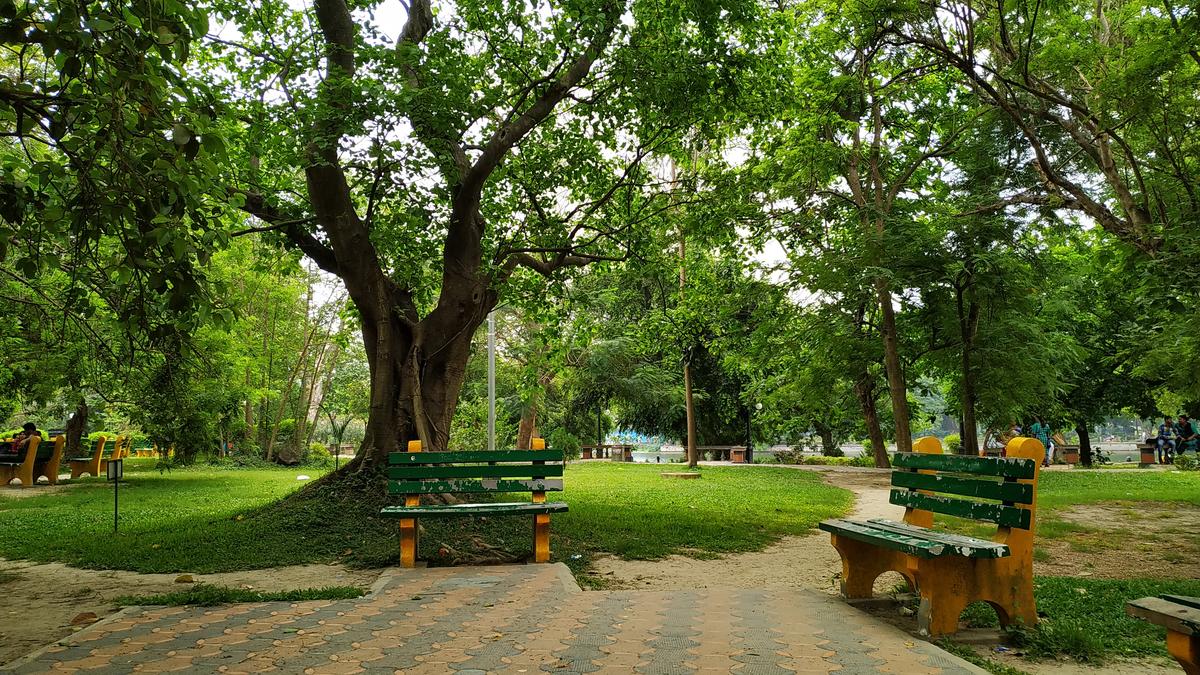
Regular maintenance of public parks will doubtless go a long way in contributing to public health and environmental well-being.
| Photo Credit: Getty Images/iStockphoto
It is refreshing to learn from time to time that civic bodies across cities are taking steps to nurture urban parks by renovating existing spaces, especially those affected by metro and other projects, and developing new ones.
Parks, which are compact green spaces, have been consistently playing a vital role in societies from time immemorial. During the different periods of Indian history, groves and gardens were set apart by rulers for public enjoyment. Mark Antony successfully whipped up the emotions of the Roman mob soon after the assassination of Julius Caesar when he announced dramatically that Caesar had “left you all his walks, his private arbours and new-planted orchards on this side of Tiber”.
However, the concept of public parks in Indian urban areas, as we know it, was introduced only during the colonial period on the lines of parks in the West. The People’s Park (1859-61), for example, was one of the oldest parks established in Chennai. Considered the “lungs” of a city, parks are indispensable in metropolitan areas.
Peace park
Talking of the status of a typical public park today, it is disappointing that its sparse vegetation fails to invest the city with nostalgic rural charm. Though one must not expect placid calm in public parks situated amid the din and bustle of a city, a fairly peaceful place is necessary for citizens.
The scene in a park varies with the hours of the day. In the mornings, one can see the superannuated gentility taking the morning constitutional. A few people trudge stertorously around the park as if it is a ritual. Parks become very noisy in the evenings with children playing all around. The balloon vendor produces the usual irritable noise to attract them. Vendors selling groundnuts and ice cream ply a brisk trade. Soon the place gets littered with fruit rinds and bits of paper.
Most of the parks have only a minimum supervision by a part-time guard. Lack of cleanliness is a common issue. The growth of grass goes unchecked giving rise to mosquito menace. As the night falls, everything is quiet again in the parks. Early in the morning, one finds some men who have chosen the park for their nocturnal sojourn, unwillingly rising from the cement benches, cursing the sun that disturbed their night-long slumber.
Winding down
For the common person who does not have the advantage of a beach near his home, a park is the only place where he hopes to find relaxation and respite. In the country as a whole, there is a significant shortage of public parks and green spaces due to rapid urbanisation. It is important to regulate encroachment on lands earmarked for parks and also ensure that parks are evenly distributed over a city. Regular maintenance of public parks will doubtless go a long way in contributing to public health and environmental well-being. Local administrations must allocate adequate funds in their annual budgets for this purpose. They should remember that a park is not a luxury, but a necessity.
On the lighter side, I recall an incident related to a park of my school days. My classmate Mani used to be marked absent for a number of days. When he had lost his term days, his class teacher referred the matter to his parents. They were told that the boy was regularly leaving for the school with his books and tiffin box and returning home in the evening.
On investigation, it transpired that the boy spent the school hours playing hide and seek with street children in the park adjacent to our school. He used to have his lunch and his siesta under the umbrageous banyan trees in the park and leave for home on hearing the school bell. The parents acted quickly to correct the boy’s behaviour. His mother accompanied him to the school, waited for the whole day in the park and ensured that the boy attended the classes.
When I met Mani after a long time, I enquired about his profession. “I graduated with a degree in botany, and I am now the supervisor of public gardens and parks in the city,” he said proudly.
Published – August 17, 2025 12:31 am IST
